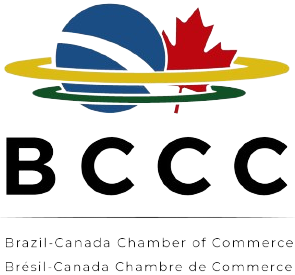As the European Commission pushes for imposing due diligence requirements on environmental and
human rights risks for EU companies in 2021, panellists of the Brazil-Canada ESG Insights event reinforced
yesterday the prospect of a growing ESG scrutiny for companies worldwide.
During opening remarks, Dulce Meldau-Benke of the advisory and consultancy firm PROACTIVA noted ESG
issues go beyond risk management and highlight “an initiating revolution where the pricing of climate risk
has generated a global movement of capital relocation.”
For Raquel Althoff, Lead Consultant at Löning – Human Rights & Responsible Business, the ongoing
European legislation on mandatory human rights due diligence should cascade down to affect “investors
and supply chains having an impact on several businesses around the world.”
Mining companies such as Vale are among those gradually incorporating rights diligence processes into
their operations. According to the company’s Human Rights and Sustainability General Manager, Liesel
Filgueras, human rights training has been provided to employees since 2016, and this has become
mandatory as of March 2021. “We focus significantly on capacity building.”
According to Brasken Human Rights Specialist, Nathalie Laureano, discrimination and harassment are
assessed as high risk by the company. She said the company is in process of implementing several
improvements in the investigation process to take better care of victims. “It’s not only the right thing to
do regarding the rights of the other, but also for the reputational risk of the company.”
Speaking on the panel ESG Reporting: Regulation and Trends, Luciane Moessa, a member of the Technical
Expert Group of the Task Force for Nature-Related Financial Disclosures (TNFD), called for regulators to
work on setting of universal sustainability standards for disclosing ESG information. “Investors can’t
compare how companies from the same industry perform because they answer questions based on
different standards.”
Claudia Salles, Manager of Environmental Affairs at the Brazilian Mining Institute (IBRAM), said the
the institute has adopted Canada’s Towards Sustainable Mining (TSM) since 2019 and is currently working on
a national database including an ESG component.
Roopa Dave, Partner on Sustainability and Impact Services at KPMG Canada, echoed the call for more and
better ESG information and noted an ongoing shift toward biodiversity risk. “Traditional sustainability
reporting has been very much focused on the impact of the business on society and now it is flipping quite
a bit to what is the risk of climate to business.”
Magali Gable, Vice-President for Sustainable Finance at BMO, pointed out that the markets need to know
how climate change poses risks for the business, whether a mine can be flooded, or investment in a new
electric fleet will be necessary. “The absence of this disclosure means the company may not have been
thinking about the risk for now, and how they are positioning them in the next five years.”
Moderating the panel ESG Commitment: Carbon Footprint and Biodiversity, Rebeca Stefanini Pavlovsky,
Senior Associate at Cescon Barrieu commented that mining activity is highly dependent on nature.
“Protecting and restoring the environment by regularly identifying, assessing, mitigating, and disclosing
nature-related issues is a win-win game.”
Ana Cabral-Gardner, Chairman and Chief Strategy Officer at Sigma Lithium Resources, shared the
successful experience of having taken into account environmental and social risks when implementing a
lithium production project in Brazil five years ago. She said that the project achieved a finance cost of 10%
lower than a peer junior company at the time, and now is one of the lowest carbon lithium production in the world. “When you can show quantifiable arguments, equity investor support increases and re-
endorses our commitment to sustainability.”
Camila Goldberg, partner on Finance and Capital Markets at BMA Law, said that there are so many fluids
concepts in how to measure climate and carbon reduction, and how to put them into concrete actions.
She noted that energy and mining sectors are highly dependent on third-party financing, and is optimistic
that international efforts such as The Paris Agreement can be translated into regulation or self-regulation
within industrial sectors that can also target finance markets.
About “The Brazilian Mining Sessions 2021” – The Brazilian Mining Sessions 2021 is a series of events held
online from March 5th and March 11th, 2021, including “The Brazil-Canada at PDAC” series of events,
which takes place during the 2021 PDAC Virtual Convention. The events focus on the Brazilian mineral
exploration and mining industries and are hosted by the Organizing Committee of Brazil PDAC 2021, led
by the Brazil-Canada Chamber of Commerce and the Agency for the Development and Innovation of the
Brazilian Mineral Sector (ADIMB).
